How Much Horsepower is Enough?
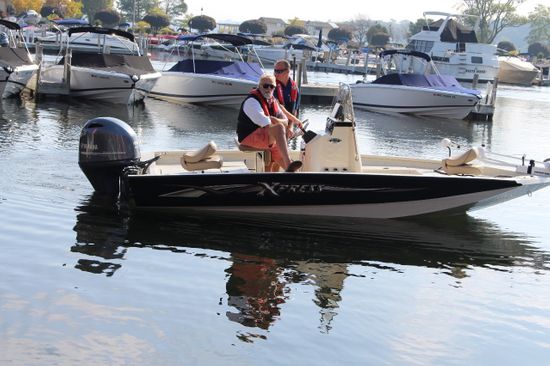
Sure, we all love seeing those massive center consoles with three, four, or even five engines. That’s cool stuff. But for the average boater, how much horsepower is enough? Naturally, to get to the answer you need to dig quite a bit deeper. How much does the boat weigh, and what design is the hull? How will the boat commonly be loaded? What are your personal requirements and how important to you is it to go really, really fast? What are some of the other advantages and disadvantages of having more or less power that are important to you?
Let’s lay down a few parameters: Any boat’s powerplant must be sufficient to get the boat up onto plane in a reasonable amount of time. It needs to have enough oomph to do so in fully loaded conditions, too. On the flip side you, don’t want to overpower a boat. Coast Guard maximum horsepower capacity plates pretty much resolve that issue, but it’s still possible to get more power than is ideal for your purposes. That has the net effect of hitting you in the wallet in initial cost, maintenance costs, and operational costs.
Weighty Decisions
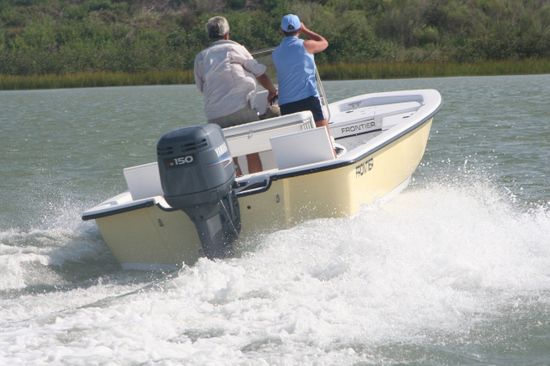
Let’s consider two 18-foot (5.49 m) center consoles with more or less identical hull designs, but one is aluminum and the other is fiberglass. The fiberglass boat is going to weigh significantly more, and as a result, there will be a powerband that will work fine for the aluminum boat but which would be woefully inadequate for the fiberglass boat. A 40-horsepower outboard can get a relatively light 18’ aluminum rig up on plane without a problem, even with several people aboard, and run at a cruising speed in the 20 mph range. That same outboard on a heavily built 18’ (5.48 m) fiberglass boat might not even be able to get her up on plane. A 60-horse outboard might be sporty on the aluminum rig and just barely sufficient for the glass boat. And a 90-horse outboard begins to feel like an awful lot of power on that aluminum rig, which can now scream across the water’s surface and may feel a bit flighty at full throttle. But on the fiberglass boat, that very same motor may feel ideal.
The Hull Story
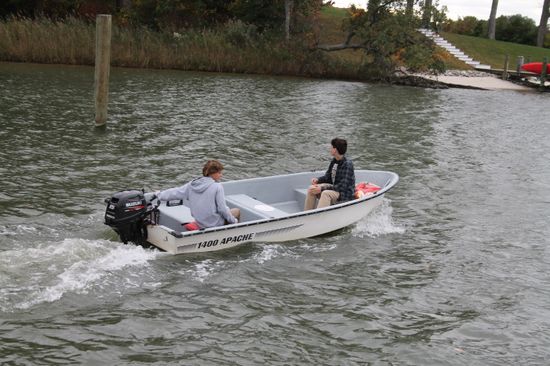
Now, hull design comes into play. A flat-bottom boat has oodles of planing surface and is the easiest design to get up and running. That’s one of the reasons some small lightly loaded flat-bottom Jon boats can get up and plane with an engine as small as five or six horses. On a V-hull design, however, more power is usually necessary to get a boat up onto plane. The deeper the V, the more power you’ll need. Power catamarans and tunnel boats throw another twist into the mix. Contrary to popular belief some don’t really gain any efficiency from their design, but many do generate extra lift, and can get by with smaller powerplants than (all other factors being equal) may be necessary on similarly sized flat-bottoms or V-hulls.
Then, there are a number of less-impactful variables to consider. Steps, chines, strakes, and special hull tweaks that may be found in one boat or another. All can contribute to just how much power a boat needs, in order to do exactly what you want it to do.
How Do You Use Your Boat?
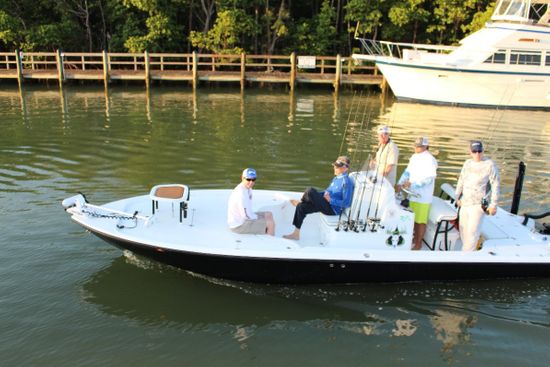
In most cases, the determining factor here will simply be how many people you usually like to take aboard. If you’re a loner, don’t worry about it one bit. But if you like to take a half-dozen friends with you, don’t sea-trial a boat all by your lonesome and decide it has just enough power — you’re headed for a future of disappointment when all your buddies join you. On an average 20-footer, a couple of people more or less can have a rather dramatic effect on performance, especially when a boat has minimal horsepower.
The Need for Speed
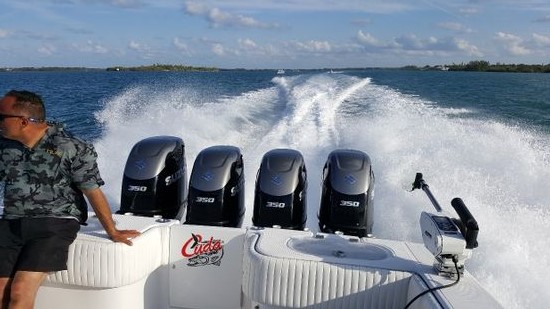
Beyond needs, we have wants, and many of us want to go fast on our boats because it’s just plain fun. Some other people simply can’t stand to miss one minute of fishing-time due to cruising, and still, others have a competitive need for speed.
There are some fringe benefits to having excessive horses, too. In general, boats that are powered at or near the top of their horsepower range tend to be easier to re-sell and retain their value better. In many cases, the engine doesn’t work as hard as a smaller engine would, since it can spin fewer rpm to attain an equivalent amount of speed. If your engine turns 3000 rpm all day instead of 4500 rpm, this can have a significant impact on its life span and can lower operational costs.
Yes, there is such a thing as too much horsepower. But like we said earlier, the biggest issue here has been more or less eliminated by power caps put on boats by regulation. So, these days when someone asks if X engine is going to have enough horsepower for a Y length boat, the answer is: Yes. No. Maybe. But if you can afford a bigger engine, why not get it?